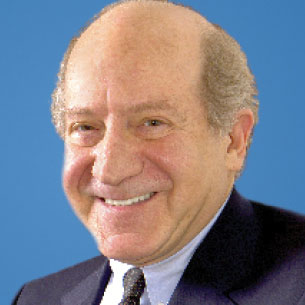Both ASCO and its global membership strive to advance cancer care for patients throughout the developing world. According to the World Cancer Report, published by the International Agency for Research on Cancer, the next 20 years will see a significant rise in cancer cases and cancer deaths, with the greatest impact felt in those countries with the least resources. Though the challenges are many—economic, political, cultural—we can’t waver in our goal to improve the quality of life for those suffering needlessly when treatment is possible and early prevention and detection methods are at hand.
Adding to the economic and logistical challenges is the stigma around cancer that still exists in many parts of the world. This is perhaps most notable in the field of gynecologic cancer where we see the impact on women who face cultural prejudice in revealing conditions and seeking care. According to the National Cervical Cancer Coalition, cervical cancer remains the number-one cause of cancer-related deaths among women in the majority of developing countries.
Such challenges call for vision and optimism and more than a dose of practicality, such as building upon infrastructures that are already in place, as Dr. Clement Adebamowo, Chair of ASCO’s International Affairs Committee, advocates in his editorial, AIDS-associated Malignancies in Developing Countries. I invite you to read this article, as well as Dr. Adebamowo’s blog “The Oncology Challenge for Africa.” The Forum section is another ideal place for members interested in international issues to meet, ask questions, and share ideas.
I’m also pleased to welcome another new blogger to the site—Dr. Anees Chagpar. Dr. Chagpar is a recent graduate of ASCO’s Leadership Development Program and a breast surgical oncologist at the University of Louisville. She serves on ASCO’s International Affairs Committee and is ASCO’s representative to the Young Physicians’ Section of the American Medical Association. Her first blog post addresses the sometimes elusive qualities of leadership: what makes a leader successful, and what do we as members of the oncology community want from our leadership?
Perhaps it’s in the international arena and in developing the next generation of leaders that networking sites such as ASCOconnection.org can be most effective—linking not only ideas, but the people who will make those ideas happen.
The ideas and opinions expressed on the ASCO Connection Blogs do not necessarily reflect those of ASCO. None of the information posted on ASCOconnection.org is intended as medical, legal, or business advice, or advice about reimbursement for health care services. The mention of any product, service, company, therapy or physician practice on ASCOconnection.org does not constitute an endorsement of any kind by ASCO. ASCO assumes no responsibility for any injury or damage to persons or property arising out of or related to any use of the material contained in, posted on, or linked to this site, or any errors or omissions.


Recent posts